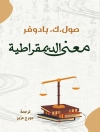There has been a lively debate amongst political theorists about
whether certain liberal concepts of democracy are so idealized that
they lack relevance to ‘real’ politics. Echoing these
debates, Lois Mc Nay examines in this book some theories of radical
democracy and argues that they too tend to rely on troubling
abstractions – or what she terms ‘socially weightless’
thinking. They often propose ideas of the political that are so far
removed from the logic of everyday practice that, ultimately, their
supposed emancipatory potential is thrown into question.
Radical democrats frequently maintain that what distinguishes their
ideas of the political from others is the fundamental concern with
unmasking and challenging unrecognized forms of inequality and
domination that distort everyday life. But this supposed
attentiveness to power is undermined by the invocation of rarefied
models of political action that treat agency as an unproblematic
given and overlook certain features of the embodied experience of
oppression. The tendency of radical democrats to define democratic
agency in terms of dynamics of perpetual flux, mobility and agonism
passes over too swiftly the way in which objective structures of
oppression are often taken into the body as subjective
dispositions, leaving individuals with the feeling that they are
unable to do little more than endure a state of affairs beyond
their control.
Drawing on the work of Adorno, Bourdieu and Honneth, amongst
others, Mc Nay argues that in order to make good the critique of
power, radical democratic theory should attend more closely to a
phenomenology of negative social experience and what it can reveal
about the social conditions necessary for effective political
agency.
Mục lục
Acknowledgements vi
Introduction 1
1 Suffering and Social Weightlessness 28
2 The Unbearable Lightness of Theory: Mouffe’s Dissociative Agonism 67
3 Freedom beyond the Subject: Feminism, Agency and Agonism 98
4 All or Nothing: Rancière’s Ruptural Agonism 132
5 Pluralism and Practice: The Existential Agonism of Connolly and Tully 168
Conclusion: Political Theory as Critique: Reconsidering the Negative 207
Notes 220
References 226
Index 241
Giới thiệu về tác giả
Lois Mc Nay is Professor of the Theory of Politics and Tutor in Politics at Somerville College, University of Oxford.












